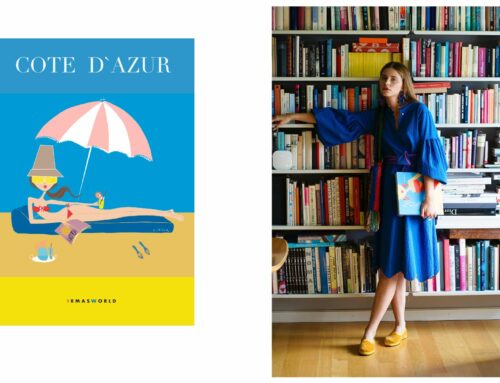Motherhood and mental health: How to keep a healthy relationship with yourself when life goes off-script
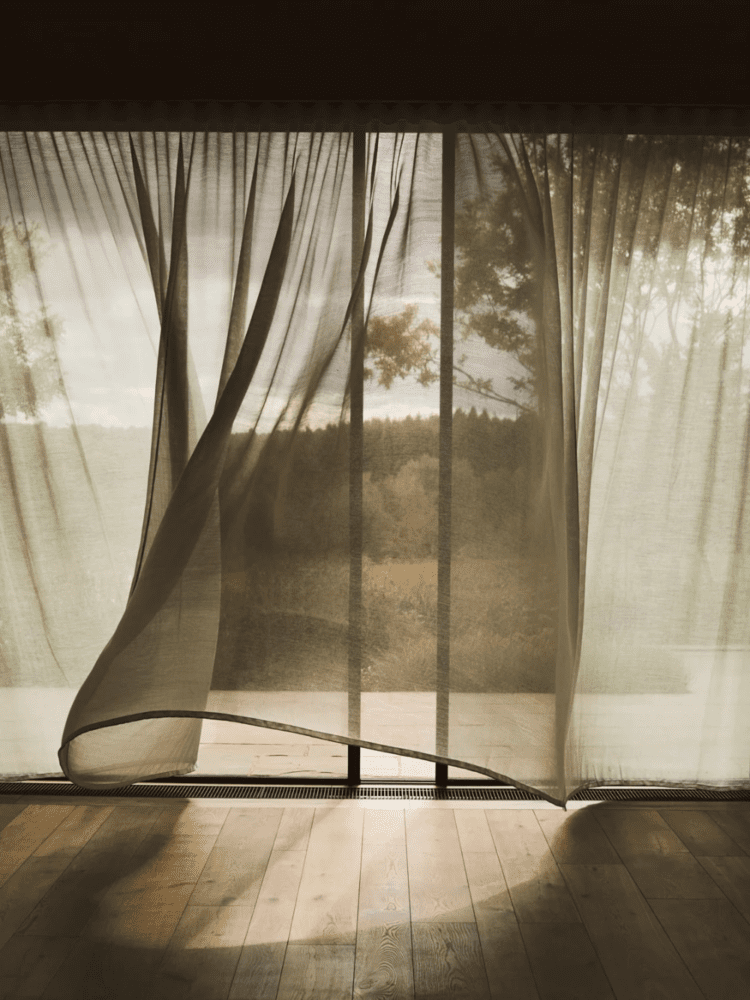
May is a Mental Health month and here at Mums in Heels we felt inspired to talk about motherhood and mental health, highlighting and acknowledging all the challenges mothers go through, while raising kids, looking after their families and trying to maintain financial stability for themselves.
My kids just turned 9 and 11 this year, but when I look back at those first 10 years of motherhood, I can’t stop wondering- how did I do it? Especially being away from my family, giving up my career, moving to a new town. You know what they say: it takes a village to raise kids. And yet more and more mothers are raising their kids in isolation. That makes everything harder: the emotional wellbeing of mums, their mental health and wellbeing of their families and even the whole society. Unfortunately no government seems to care about mothers. In Switzerland mothers’ leave is only three months and all childcare till the age of 5 is private, which means not every family can afford it. With more than 12 weeks of school holidays per year, one of the parents needs to either work less hours or not at all till the kids become twelve years old. That’s why a lot of mums have to choose to stay at home, giving up their work, their social life and even further education. And to make things even more unfair, women have absolutely no privileges or financial support in case of divorce, despite the hard choices they have to make.
The dirty word of motherhood: GUILT
When you become a mum you learn everything about guilt. You enter a landmine field where at any time, whatever you do, guilt is there to sabotage your relationship with yourself, your kids and your partner.
It is brutal, emotional and messy. “Am I spending enough time with my kids”
“Am I too tough, am I too soft?”
“Am I a good mother?”
“Why I can’t just play with my kids and leave those dirty dishes the sink for another couple of days…”
“How could I forget my kid’s doctor’s appointment”.
The list is endless. And it is unforgiving. It can destroy all the joys of motherhood. It slowly but surely breaks your spirit and confidence. It is energetically draining and eventually leads to depression, more stress and anxiety.
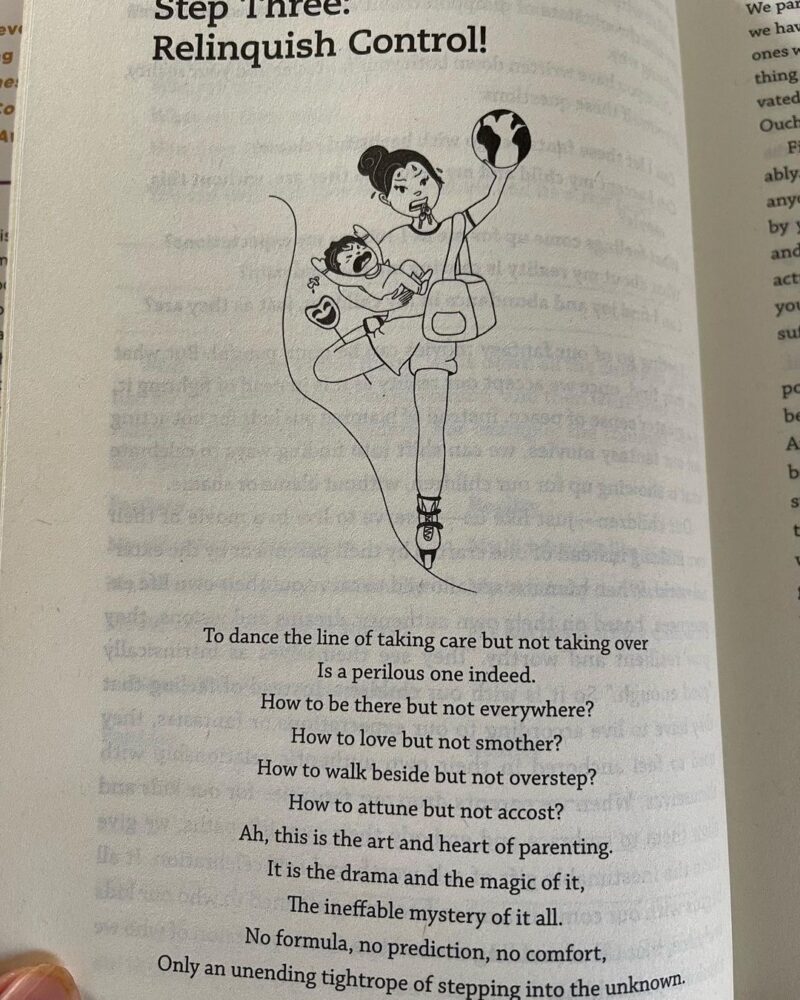
Where is Mothers’ Guilt Coming from?
Most of the time is from comparing ourselves with others and from the “good mother” ideology. But one thing we need to understand about GUILT is that it is an act of self-judgement. Self-judgement is disempowering and it makes us weak and more doubtful of our decisions. So how can we let go of guilt?
- Analyse your guilt! What we judge ourselves most of the time about is the amount of time we spend with our kids. We never think of quality time or the fact that we are the role model for these little people, who secretly observe us and want to subconsciously one day become like us.
- Ask yourself: Will it matter in 5 years?
- Remind yourself that every relationship and every family has their own story, their own rules and comparing to others is just not fair. There is no one right way to do things.
- Don’t make a big deal when you mess up. I know all too well, chasing perfection is just not healthy for anyone. Try to forgive yourself and laugh about it. Talk to your kids, to your husband and you will see they usually look at things differently.
- Define your family values and your priorities! Remember Life is not Perfect!
BURNOUT
Being a parent is harder than it looks! Mothers operate on all cylinders 24-hours a day and are constantly needed as a comfort object, driver, meal maker, doctor, mentor, playmate, sleeping buddy and a safety net.
On top of that, we always reign in our feelings, because we are expected to be patient and loving, kind and understanding, empathetic, helpful, energetic and playful for and with our kids.
And finally we are expected to maintain our home, plan activities and socialize our kids. It is no wonder a lot of mums get into a joyless rut sometimes. Being accountable and responsible for others all the time is tiring.
How can we help ourselves? First of all you have to be honest with yourself and feel no shame to admit you may be going through a ban out. Second seek for help. Talk to your doctor. Check whether you are depleted in vitamins and minerals or amino acids. Take care of yourself and know a holiday or a day spent in the SPA may not be quite enough to recover. It takes time and patience, as well as getting to know and honour our bodies and the changes we go through as women after having babies. One of my favourite Mother Care Coaches is Bel White who has different programs for women depending on their stage of motherhood – whether they are about to become mothers or postpartum and furthering this journey.
I also love the Mom Well and The Road to Wisdom Podcast. Both of them focus on moms’ health and having wise conversations around mothering and being a human.
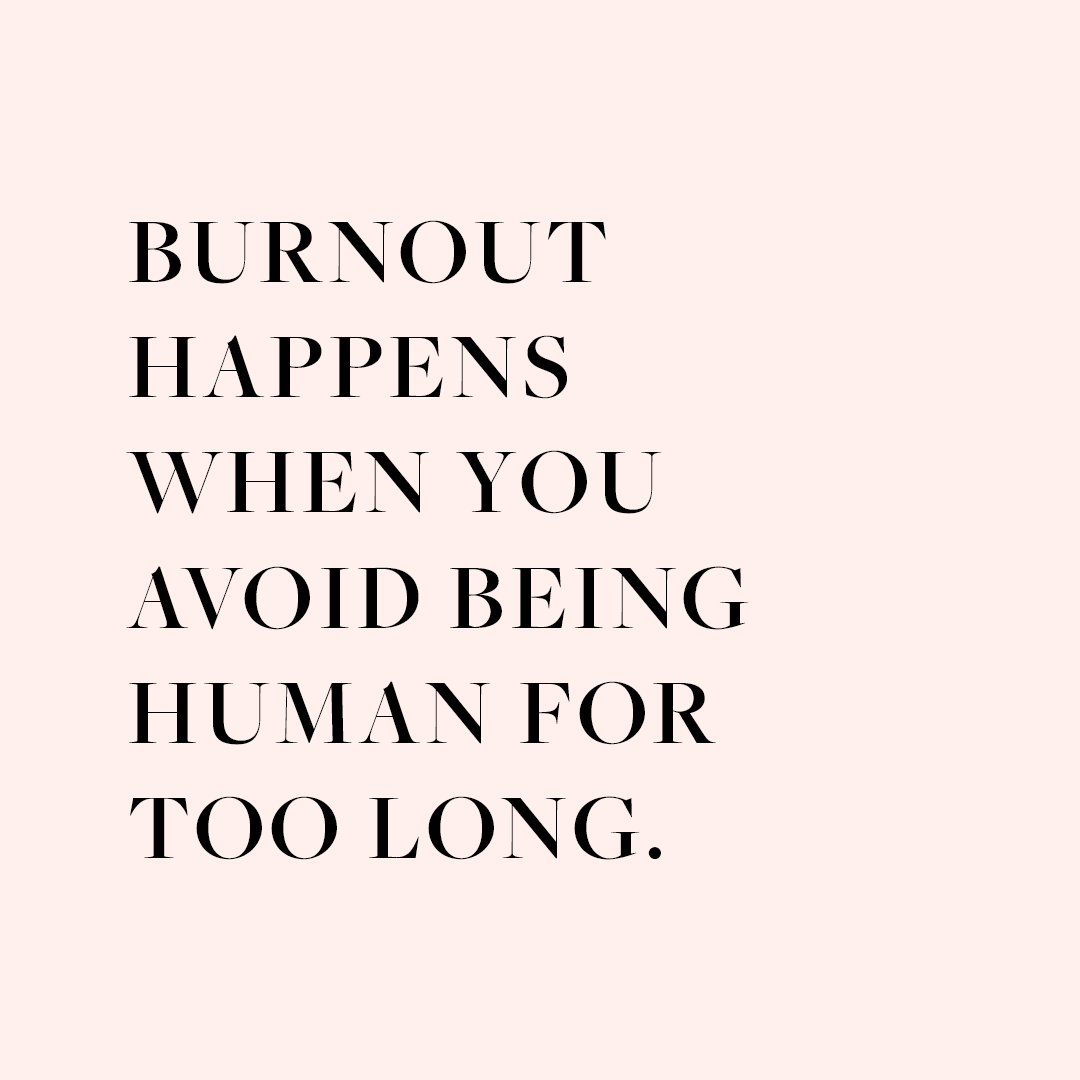
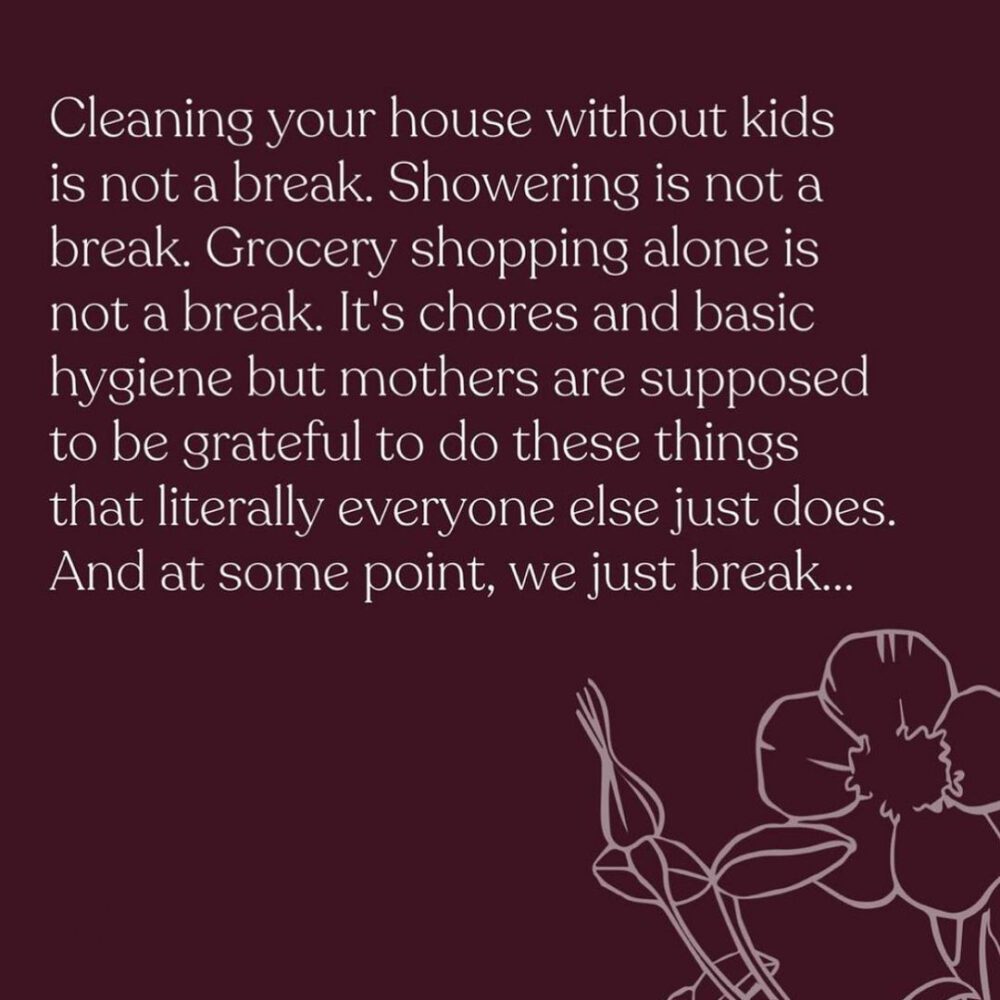
When your name becomes MUM
Identity crisis is another challenge mothers face and it is a part of the motherhood and mental health conversation no-one should underestimate. I recently read a brilliant text in the Washington Post which describes this identity crises best:
As new moms, we proclaim that we won’t give up our careers/sex lives/independence/identities — fill in the blank — just because we had a baby. We don’t want to lose what we were before. So we go in strong. Then slowly we learn that motherhood should be called “otherhood” — the relentless caring for others and not the self. Diaper changes at 2 a.m., sleepless nights, fevers, rashes. Snacks and snacks and snacks and snacks. Lunches and dinners and smoothies and shopping. Errands and baths and books. Making beds, sweeping messes, wiping butts and noses. Who is caring for the mother? We certainly don’t have the energy to care for ourselves.
It becomes very easy to get lost in those never ending circles and routines of motherhood. Women who take the decision to put on pause their careers often end up asking themselves whether they will be ever able to get their lives and careers back!
Unfortunately I can’t tell you how to solve that challenge. Before I became a mum I was working as a journalist, but then I stopped. I took a break for about 6 years. Then slowly started looking for a job. I had to pick up socialising and getting back into the right network. I was in a foreign country and didn’t speak the language properly. I never went back to working as a journalist, but I had kind of a reset. The identity crises made me look at myself and my skillet differently. As much as I had lost a lot of my professional confidence, I built a new one, but I had to re-think myself. I had to take a few jobs and positions that did not match my old professional profile. I took a few steps left, right and back, but only to learn and expanded my professional profile and increase my skillset. Five years later I haven’t yet arrived to my “Dream job”, but I feel I am really close. I feel a lot moe capable and much more confident. My vision for the future has become again clear and purposeful.
Some tools and ways to help you with Identity Crises:
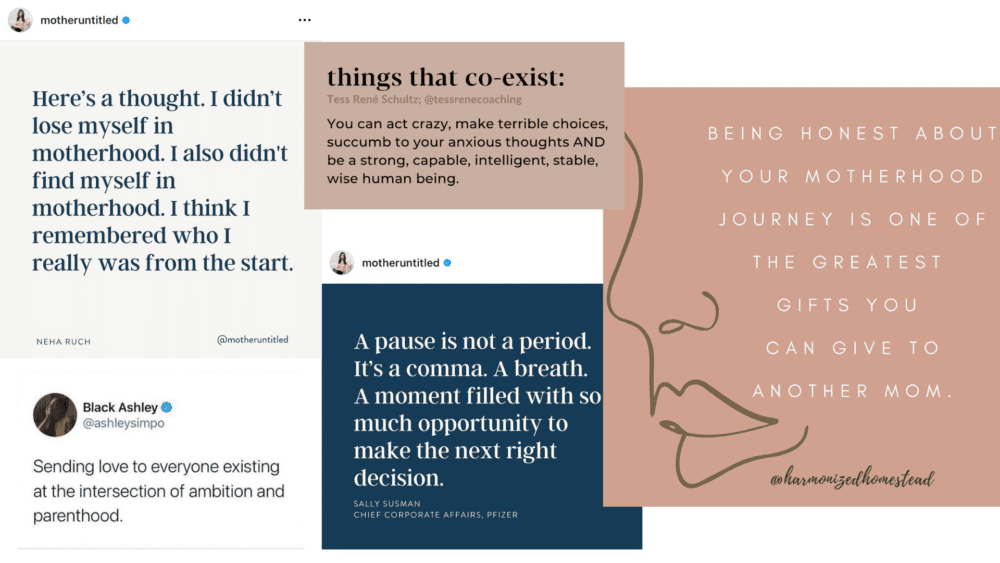
The Second Life Podcast will inspire you to look at yourself differently, to get out of the old scenario and invent a new job for yourself.
Another inspiring place I often visit is the Instagram account of Neha Ruch and her Mother Untitled Blog.
Lonelier than ever
No-one prepares you for that part of motherhood – loneliness. I wasn’t quite thinking about it too till I became a new mum. Most of my friends already had kids plus I was living thousand of kilometres away from my family. There were entire days when I wouldn’t talk to another adult aside from a few rushed, kiss-and-go goodbyes to my husband. But if you ask me that wasn’t as much the problem as the feeling of isolation. It felt like I was living in a glass house, looking at people passing by, going to work, having lunch, talking about all kinds of things and I was alone with my baby at home with nothing else to talk about but dirty diapers, breastfeeding, burping and sleep routines.
“Loneliness, as defined by mental health professionals, is a gap between the level of connectedness that you want and what you have,” John Leland writes in the New York Times.
Being a new mum was the loneliest time of my life. And the problem is that I felt so exhausted that I didn’t feel like going out. I was also so focused on my baby I was not ready to leave him at home with a stranger. That’s why mums never stop needing their village and if you don’t have one build it. Make new friends, talk to other mums, look for Mum Clubs and meeting points in your town. Show up for yourself and don’t be afraid of the messiness, the rising and sinking emotions and the imperfections. No matter what other mums say, we share the same challenges. Every day is different and one day we may feel we have it all together, on the next it all falls apart. Remember that you can conquer your loneliness by building your own village.
One of my most favourite Instagram accounts is the Highly Sensitive Parent. Whenever I read their posts I feel seen, I feel recognised like I have found my community. And yet this is just a place where I like to hag out from time to time. The real place where I don’t feel alone is talking to my partner and my best parent about my emotions, my doubts around my kids. And the key is to be honest. Even if you feel shame or guilt to feel a certain way, say it. That’s why I like to visit The Highly Sensitive Family. At least I know I ma not alone when it comes to how I feel.
What happens when couples become parents
As exciting as it may be for a couple to have a child, what no-one tells you how the dynamic of your relationship changes after your first one is born. The pressure comes from all kind of factors, but the one every couple faces are those first months when the father usually goes to work and the mum stays home. At some point I remember I was thinking how my husband gets to keep his life back, relatively normal and almost the same, while my life was upside down and everything was different. I had to deal with shifting hormones, breastfeeding, my changing body, lack of sleep and all kinds of other issues. I was angry and upset and devastated. The only way we dealt with this is we talked all the time about it and on weekend I always had time for myself or we were just out, traveling, so I could get out of my new routine. I could feel myself again when I met with friends and I knew one day things will change.
Another strain for the relationship could be parenting differences. Usually this part shows up at a later stage of parenthood, but it is important to see and accept other ways of parenting. Different doesn’t mean wrong. If you can’t resolve those different parenting methods, talk to someone outside of the family, visit a couple therapy if necessary, but don’t neglect or don’t lock inside your disagreements. Parenting is a lifetime journey and piling up unresolved issues could be dangerous for your relationship.
One of my favourite podcasts on relationships is Where Should We Begin. The Host is an author and psychologist and her Instagram is also worth visiting. Esther Perel has many videos and practical advice for specific situations that will feel oddly familiar.
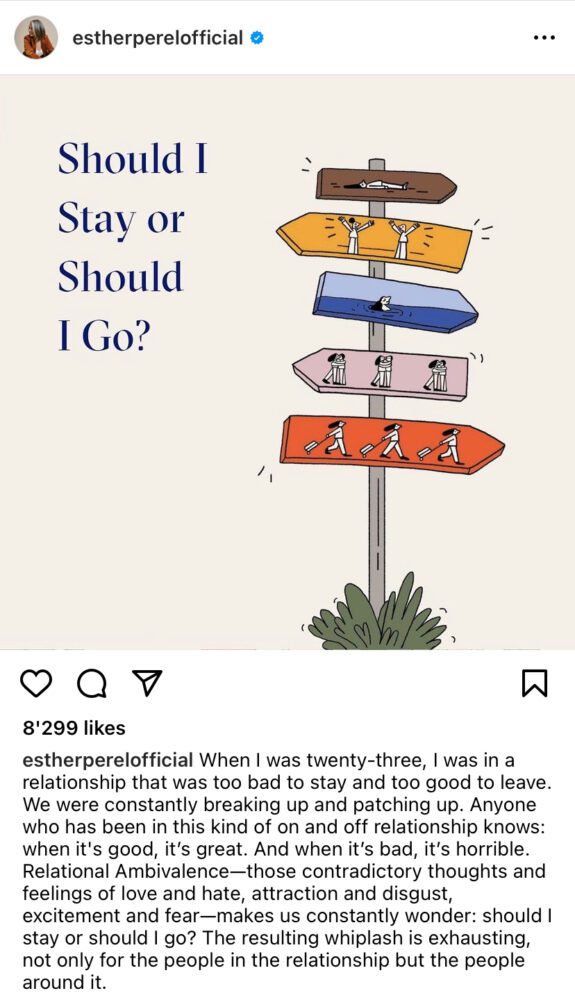
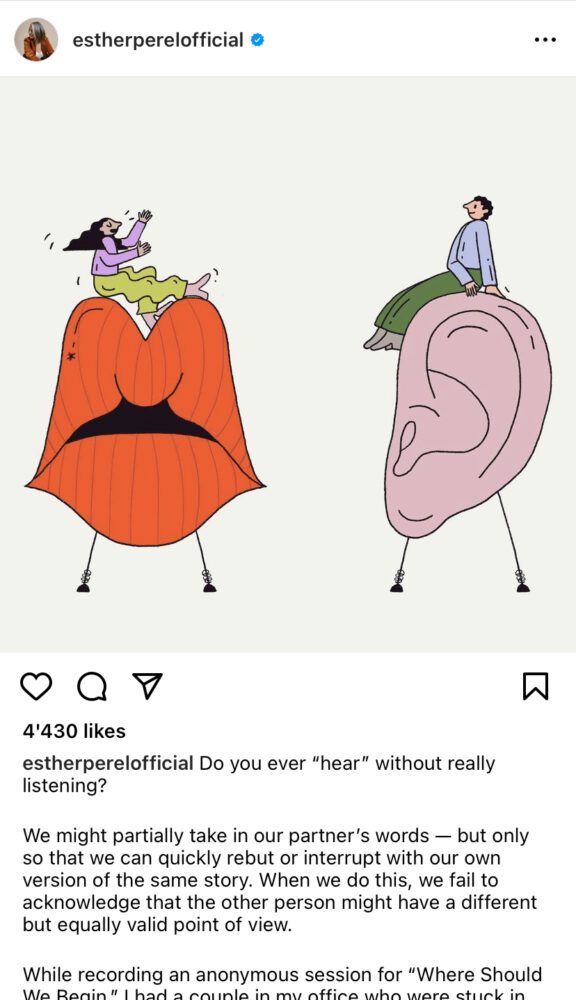
Finally this blog will not be complete if I didn’t mention one of the most popular conscious parent coach, public speaker and bestselling author: Dr. Shefali. Check her on Instagram and her new book “The Parenting Map“.
Sign to receive the complete experience
with unpublished content & community deals

